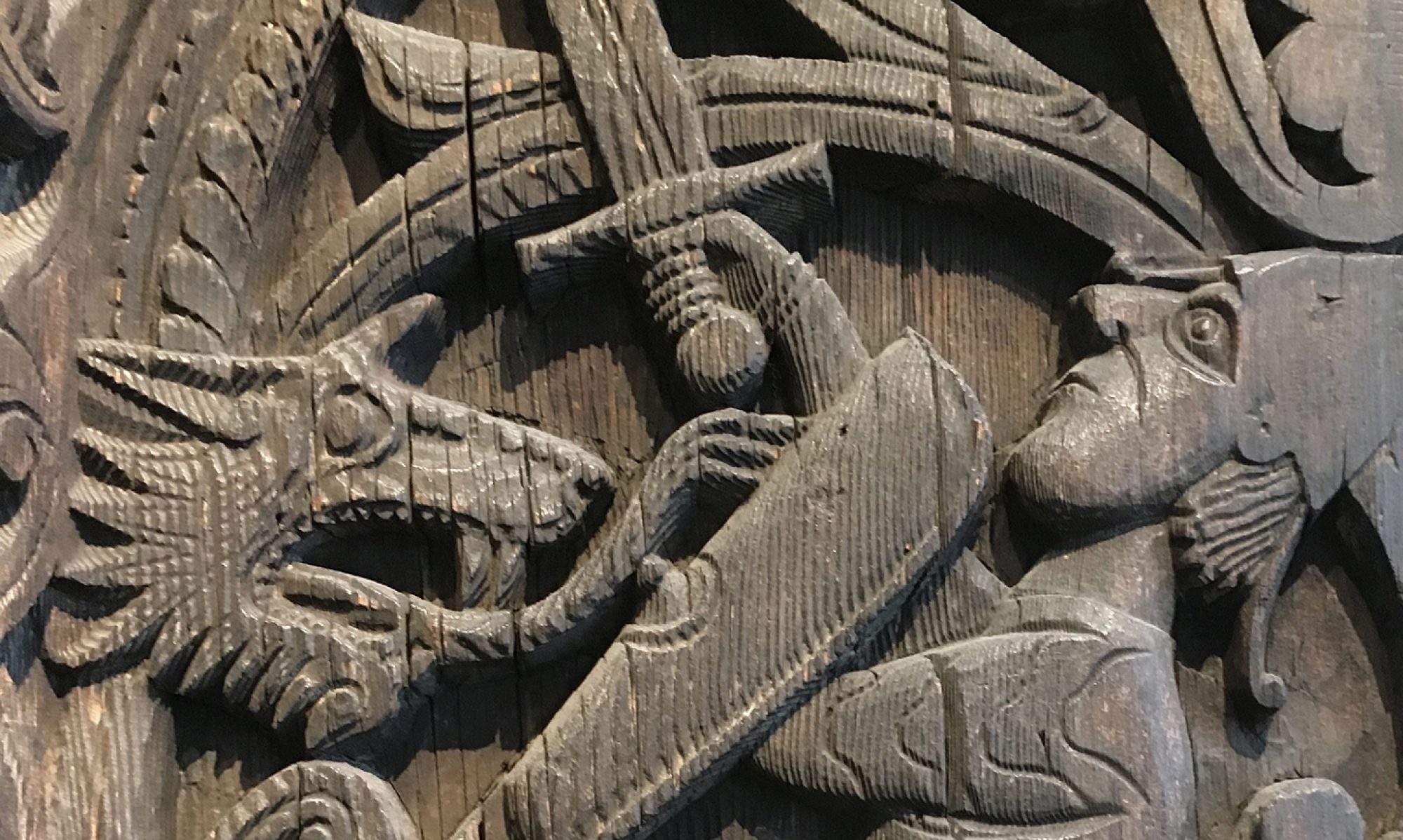In 2021, Steven Mithen travelled to Nave Island in search of evidence of Viking settlement. You can read about his findings in his report, Searching for the Vikings on Nave Island, Isle of Islay, here.
Summer Meeting of the Society 2022
The Annual General Meeting of the Society
will be held in Liverpool (the Adelphi Hotel, Derby Suite)
on Saturday 18th June, 2022, 4.15 p.m.
The President of the Society, Andrew Hamer (University of Liverpool),
will give his Presidential lecture on
‘The Strengleikar: Some Reflections’
The Council will meet at 3pm at the same venue
A drinks reception will follow the president’s lecture.
Report by Bjarni Gunnar Ásgeirsson (Research Support Fund)
In the spring of 2020, I discovered that in the Stowe collection in the British Library was an Icelandic fourteenth-century parchment bifolium, said to contain “anecdotes of Archbishops of Canterbury,” that had never been studied or discussed by Old Norse-Icelandic scholars. Also in the Stowe collection were three eighteenth-century paper manuscripts which contained texts copied from Icelandic manuscripts in the Arnamagnæan collection in Copenhagen. I ordered images of the bifolium, transcribed and studied its text and found that it had once been a part of the manuscript AM 764 4to (Reynistaðarbók), in the Arnamagnæan collection. My investigation revealed that the bifolium had been removed from the manuscript in the late eighteenth century. It was then taken to England where Grímur Jónsson Thorkelin (1752–1829) presented it to Thomas Astle (1735–1803), whose manuscript collection makes up the bulk of the Stowe collection.
I wrote an article about my discovery and edited the compilation of texts now split between Stowe MS 980 and AM 764 4to. The article, “Anecdotes of several archbishops of Canterbury: a lost bifolium from Reynistaðarbók discovered in the British Library,” is printed in the journal Gripla, vol. 32 (2021), pp. 7–56. A grant I received from the Viking Society for Northern Research allowed me to travel to London to study the bifolium as well as the three paper manuscripts in the Stowe collection in person on October 21–23, 2021. There, I was able to measure the leaves and the text blocks and confirm that they were indeed of comparable size to the leaves of AM 764 4to. I was also able to clarify some readings that were unclear in the images provided by the British Library. Lastly, I used this opportunity to take my own photos of the bifolium as well as of the Icelandic paper manuscripts in the Stowe collection, which will aid me in any future publication.
